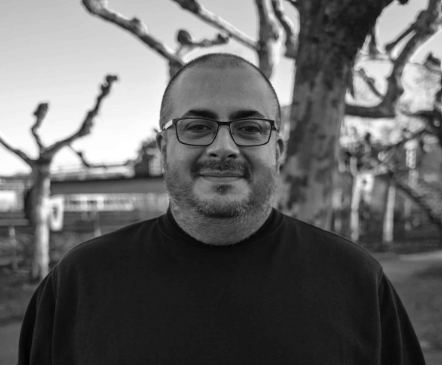EECERA Conference 2025 – Guest Blog # 22: Whose Paradigm?
Posted 19th August 2025
One of a series of short blog posts by presenters who will be sharing their work at the upcoming annual conference in Bratislava, Slovakia. Any views expressed in this post are those of the author(s) and do not necessarily reflect the official stance of their affiliated institution or EECERA.
Whose Paradigm? Rethinking Childhood Agency in Education Policy: Ecuador, Spain, and Wales
By Dr. Gisselle Tur Porres – Swansea University, UK
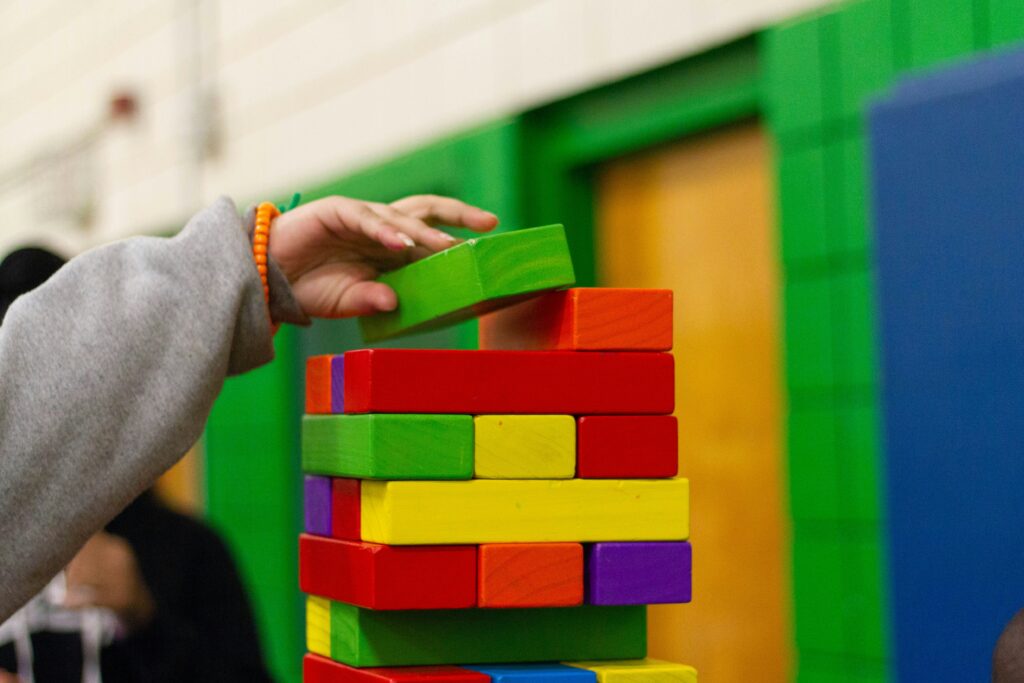
Photo by La-Rel Easter on Unsplash
In international/global policy studies in Early Childhood Education and Care (ECEC), childhood has been often conceptualised through universalised, developmental frameworks rooted in Western and Eurocentric paradigms. While these models lead international policy discourse, they risk presenting childhood as a fixed, ahistorical, and culturally neutral stage (Burman, 2016). However, scholars such as Mignolo (2000), Mohanty (2003), and Tuhiwai Smith (2021) remind us that these frameworks systematically marginalise non-Western, Indigenous, and Global South epistemologies, especially those that challenge the dominance of “objective” science and liberal humanism.
But what happens if we analyse these universalising discourses of childhood with a focus on children’s agency? What happens when we look beyond the lens of agency centred on autonomy and rational individualism, largely informed by Western and Eurocentric paradigms?
This blog introduces a critical research study that explores national policy frameworks in Ecuador, Spain, and Wales and how children’s agency is recognised in ECEC. Drawing on a decolonising perspective to understand children’s agency in cross-cultural contexts, we engage with some critical reflective questions: Whose knowledge shapes the understanding of childhood agency and participation? Whose voices remain unheard in national education policy frameworks?
The analysis of children’s agency with the sole approach of psychological models that view agency as self-directed or Western liberal ideals of the autonomous child becomes a narrow framing that may exclude relational epistemologies that position children within land, community, and ancestry (Nxumalo and Cedillo, 2017). There is also a risk to exclude historical and political contexts, including colonial legacies that continue to shape education systems (Martínez Novo, 2021). This creates a disconnect between what is recognised as valid knowledge and the diverse realities of children’s lives in different cultures.
Who Gets to Speak? Who Gets to Be Heard?
Drawing on Fraser’s (1997) theory of recognition and Crenshaw’s (1991) concept of intersectionality, this research stands on a critical reflexive approach to key questions:
- How do national policies in Ecuador, Spain, and Wales conceptualise children’s agency?
- Whose voices are legitimised in education policy?
- Whose knowledge is acknowledged, and whose is systematically excluded?
Children from marginalised groups, including Gypsie-Roma, Indigenous, Afro-descendant, and migrant communities are often framed as “at-risk” or “deficient,” rather than as holders of knowledge in their own right (Quennerstedt and Quennerstedt, 2014). Meanwhile, elders, oral historians, and community leaders from non-Western traditions are rarely recognised in formal policy documents or research citations.
Why This Research Matters?
This study does not just explore existing policy frameworks, but it analyses how Ecuador, Spain, and Wales frame children’s agency and participation in education policy. This exploration opens space for further debates on plural epistemologies in education, recognition of children’s voices, especially those historically silenced, and policy transformation that reflects diverse ways of being, knowing, and learning. The understanding of policy education frameworks with cultural pertinence can open inclusive debates that honour the rights, identities, and voices of all children.
Concluding Reflections
This study sets out to explore how national education policies in Ecuador, Spain, and Wales acknowledge or overlook children’s agency, particularly among those from historically marginalised communities. The study engages in a cross-cultural policy analysis through a decolonial lens, to illuminate how childhood agency is framed and enacted across diverse contexts.
Our findings will contribute to further debates and research for:
- A deeper understanding of how policy shapes children lived experiences across cultures;
- A decolonial perspective that challenges dominant narratives about childhood and agency;
- Reflective insights for developing inclusive, culturally responsive education policies that genuinely recognise all children’s voices.
References
Burman, E. (2016). Deconstructing Developmental Psychology (3rd ed.). Routledge.
Crenshaw, K. (1991). Mapping the Margins: Intersectionality, Identity Politics, and Violence against Women of Color. Stanford Law Review, 43(6), 1241–1299. https://doi.org/10.2307/1229039
Fraser, N. (1997). Justice interruptus : critical reflections on the “postsocialist” condition. Routledge.
Martínez Novo, C. (2021). Undoing Multiculturalism: Resource Extraction and Indigenous Rights in Ecuador. University of Pittsburgh Press.
Mignolo, W. (2000). La colonialidad a lo largo y a lo ancho: el hemisferio occidental en el horizonte colonial de la modernidad. In, E. Lander (ed.) La colonialidad del saber: eurocentrismo y ciencias sociales. Perspectivas latinoamericanas. (pp.34-52). CLACSO, Consejo Latinoamericano de Ciencias Sociales.
Mohanty, C. T. (2003). Feminism without borders : decolonizing theory, practicing solidarity. Duke University Press. https://doi.org/10.1515/9780822384649
Nxumalo, F., & Cedillo, S. (2017). Decolonizing place in early childhood studies: Thinking with Indigenous onto-epistemologies and Black feminist geographies. Global Studies of Childhood, 7(2) 99 –112. https://doi.org/10.1177/2043610617703831
Quennerstedt, A., & Quennerstedt, M. (2014). Researching children’s rights in education: Sociology of Childhood Encountering Educational Theory. British Journal of Sociology of Education, 35(1), 115–132.
Tuhiwai Smith, L. (2021). Twenty-five Indigenous Projects. In Decolonizing Methodologies: Research and Indigenous Peoples (pp. 163–185). London: Zed Books. Retrieved June 26, 2025, from http://dx.doi.org/10.5040/9781350225282.0013
Gisselle Pau Torres will present work referred to in this blog in Symposium Set E2 | Wednesday 27th August 2025, 13:00 – 14:20 | Room G104, First Floor, Faculty of Arts (Schedule liable to change; please refer to final programme for details).
Author and Team Bios
Lead Author: Dr. Gisselle Tur Porres– Swansea University, UK
https://orcid.org/0000-0003-1494-0549

Dr Gisselle Tur Porres is Programme director and Lecturer for the BA in Early Childhood Studies that sits in the Department of Education and Childhood Studies at Swansea University. Gisselle has been convenor of the International Research Network (IRN) of the World Education Research Association (WERA- 2021-2024): Promoting and supporting children’s agency and participation in Early Childhood Education and Care (during the COVID-19 pandemic and beyond). Her research interests focus on supporting learning and teaching practices in the early years from emancipatory pedagogical perspectives and participatory research approaches, including children, families, teachers/practitioners and communities.
Research Team Members and Contributing Authors:
Dr. Michelle Brinn - Swansea University, UK

Dr Michelle Brinn is a Lecturer in the Early Childhood Studies and Education Studies at Swansea University. She is Programme Director for the Professional Doctorate in Education and has worked as a teacher and lecturer for over 30 years, both in the UK and Internationally. Her area of expertise is Early Years Education, but she has taught all ages, from 18 months to retired adults, in a range of educational settings. As a Practitioner Researcher her research focus reflects the needs of her settings, but her passion is to integrate parent and student dialogue within learning communities.
Dr. Hazel Acosta – National University of Education (UNAE), Ecuador
Dr Hazel Acosta is an associate professor at the Universidad Nacional de Educación who holds a PhD in Development Studies specialising in development and education. She is a committed educator-researcher who has had exposure in the Philippines, Denmark, and the United States and is currently based in Ecuador. Hazel’s interests revolve around students’ resilience and agency as a lens for understanding development in education. Aside from research and teaching, Hazel is also involved in various continuing professional development training projects for preservice and in-service teachers to establish the synergy between teaching and research.
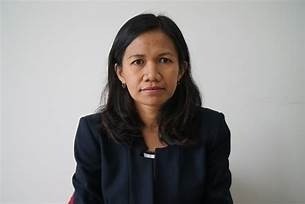
Dr. Juan Carlos Brito – National University of Education (UNAE), Ecuador

Dr. Juan Carlos Brito (Ecuador), anthropologist and Doctor of Education from the University of Santiago de Compostela. He is associate professor and main researcher at the National University of Education (UNAE, Ecuador) and a member of the research group EDUSUR. Among other topics, he researches childhood from the perspective of cultural diversity and education.
Dr. Virginia Gamez Ceruelo – National University of Education (UNAE), Ecuador
Dr. Virginia Gámez Ceruelo is a professor-researcher in Applied Didactics at the National University of Education (UNAE) and co-director and founder of EduSUR research group. She has a PhD in Didactics of Sciences, Arts, Languages and Humanities from the University of Barcelona. She has a Master’s degree in the Didactics of Plastic and Visual Expression and a BA degree in Art History, from the Complutense University of Madrid. Her main lines of research are the analysis of school curriculum and textbooks, with special attention to the use of images in compulsory school education and intercultural dialogue. She has carried out research stays at the Universidade Federal do Paraná (Brazil) and at the Universidade de Cabo Verde.
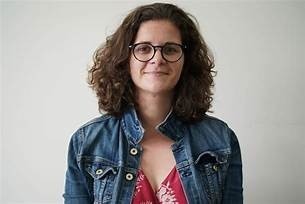
Dr. Jacky Tyrie – Swansea University, UK
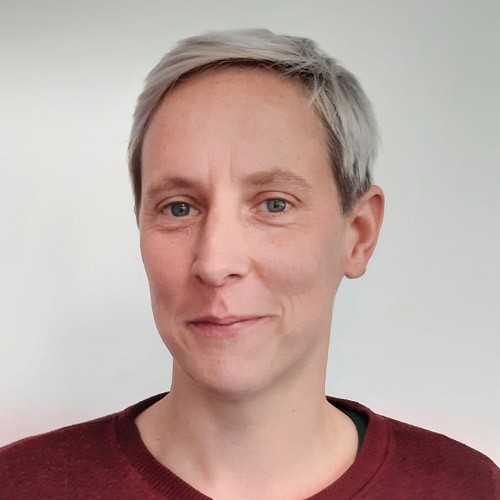
Dr Jacky Tyrie is a Senior lecturer in Early Childhood Studies at Swansea University. Her teaching focuses on children’s right and the early years from sociological and geographical perspective. Her research interests are focused on participation rights in Early childhood education and care settings. Jacky co-ordinates the Children’s Rights in Early Years (CREY) Network (Wales). The CREY Network draws together, academics with policy makers, NGO’s and practitioners to share knowledge and work together to support children’s rights in Wales.
X Profile https://twitter.com/DrTyrie
Ms. Lauren Henderson – Swansea University, UK
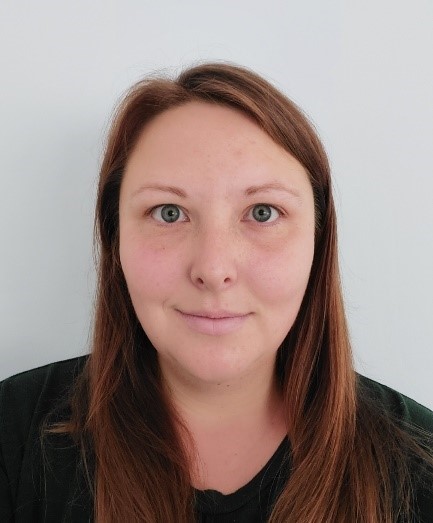
Lauren Henderson is a PhD researcher at Swansea University. Focusing on young children’s (aged 0 to 5) participation rights in pedagogical practice within early childhood education and care (ECEC) settings in Wales. Her research explores how children’s voices are recognised and used to implement decision making processes during everyday practice within nursery settings. Prior to beginning her doctoral studies, Lauren worked as a primary school teacher for over 10 years across England and Wales, where she developed a strong interest in children’s rights and inclusive pedagogies.
LinkedIn profile: https://www.linkedin.com/in/lauren-henderson-b8b115b4/
Mr. Rubén Chao Garcia – Universidad Santiago de Compostela
Rubén Chao García is a PhD candidate in education at the University of Santiago de Compostela (USC) under the supervision of Francisco Rodríguez Lestegás and Andrés Domínguez Almansa. His qualitative research is based on cultural ethnography, case studies, actions and observations in primary education classrooms, as well as on the analysis of the materials produced by the students themselves; It focuses on exploring the potential of schools as active spaces for the resolution of social conflicts in their immediate environment, with the aim of promoting social change.
